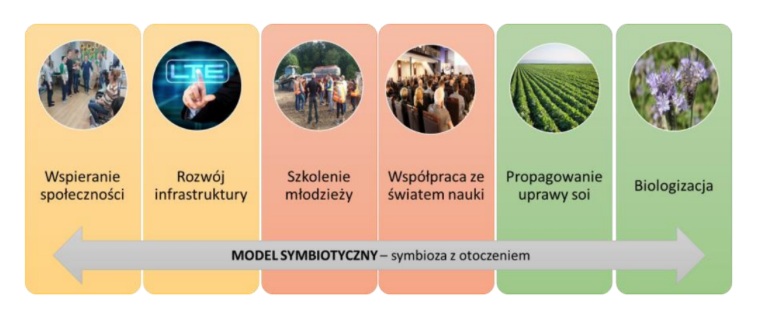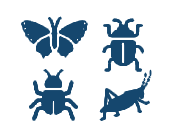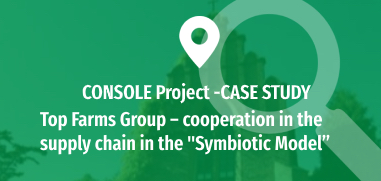Summary
Cooperation within the “Symbiotic Model” between the Top Farms Group as a leading entity and partner family farms generates synergy effects and is an example of co-operation in the integrated value chain.

So far cooperation is limited to cultivation of selected crops (mainly cereals and vegetables). Resources of the leading farm can be used in partner farms allowing to increase profitability and production efficiency. An access to know-how, technology, machinery services and the supply chain of the leading company gives a chance to
optimize production costs and increase incomes.
In the economic dimension, the leading farm – the Top Farms Group, contracts specific crops on partner farms, provides means of production (costs might be settled after the harvests), guarantees purchase prices and certainty of commercial transactions, ensures
collection and storage of crops, etc.
In terms of the technology, the leading farm provides desired varieties of crops as well as agronomic advises that support implementation of good agricultural practices including methods increasing soil fertility based on and the foundations of regenerative agriculture in particular. Top Farms, which is the largest producer of nonGMO soybean in Poland is actively promoting cultivation of this valuable crop. Depending on the needs, specialized services using state-of-the-art equipment might be provided.
In the social sphere, the leading farm supports local development. Different actions undertaken improve the quality of life of local residents and benefit natural environment. Building water reservoirs which, apart from their retention and recreational functions, are a habitat for many species of animals, may serve as an example. The leading farm cultivates the culture and traditions of agriculture, among others enlarging the system of windbreaks in the area of the Dezydery Chłapowski Park through planting new and caring for the existing strips of trees and shrubs that protect the fields from wind erosion.
Cooperation in the social dimension also means support and education of local children and adolescents – the creation of a training center, apprenticeships for students, an educational program for children, subsidies for local agricultural schools, which are used by the families of the hosts cooperating with Top Farms.
The leading farm also invests in infrastructure so that local partner farms can more effectively carry out the tasks entrusted to them. An additional aspect is the support of local cultural, sports and rehabilitation institutions, local administration units as well as places of worship.
Objectives
- Integration within the supply chain (farmer – Top Farms – processor) and within the local community around educational, cultural and infrastructural needs;
- Ensuring the profitability of smaller farms by enabling the implementation of the most advanced cultivation technologies, including the most suitable varieties of crop, and an access to large customers in the supply chain;
- Protection of the environment by promoting and implementing solutions basedon the foundations of regenerative agriculture.
- Supporting the local community in meeting educational, cultural and infrastructural needs.
Public Goods




